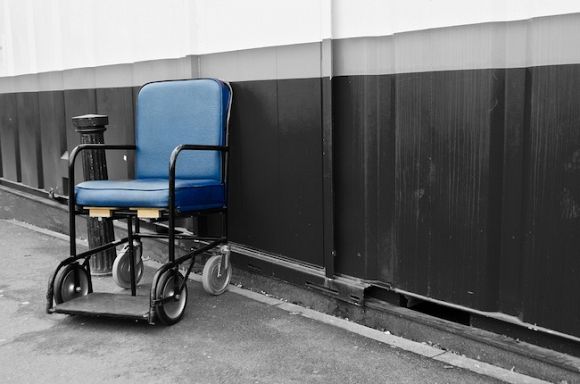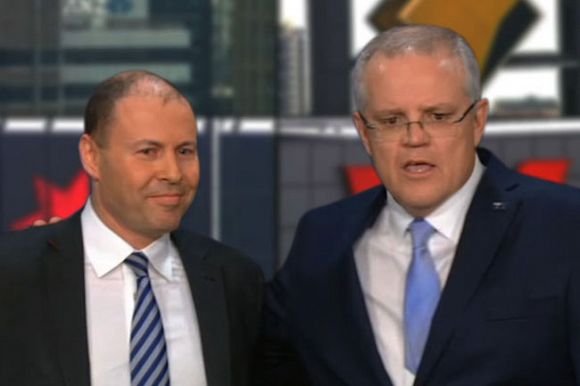The Jobs Summit highlighted the Albanese Government's need to improve on its disability employment strategy, writes Melissa Marsden.
THE ALBANESE GOVERNMENT’S Jobs and Skills Summit has been hailed by business and government as a success.
The Summit, held between government and business from across the country, triggered flashbacks to the Hawke-Keating-era accords, spelling hope that a move away from the conflict that has so often surrounded industrial relations in Australia may be possible.
The Government has agreed to implement 36 initiatives founded during the summit including a further $1 billion to fund free TAFE spaces including 465,000 fee-free TAFE places; more flexibility for pensioners; and investment in affordable housing as well as access to jobs and training for First Nations and people from culturally diverse backgrounds.
Measures to assist women fleeing domestic violence including paid leave and 4,000 new social housing properties for women and children fleeing family and domestic violence, including older women on low incomes who are at risk of homelessness, were welcome additions to the agenda.
These are, of course, excellent measures and indeed deserve a level of praise. However, gaps still remain in the Government’s approach.
One area still lacking in detail however was an effective and inclusive approach to disability employment.
Measures were mentioned, however, these remained incredibly narrow and failed to provide a clear way forward for people with disabilities.
The establishment of a Disability Employment Centre for Excellence to improve ideas and increase capacity among employment services was flagged, as well as including employment in National Disability Insurance Scheme (NDIS) plans to better assist participants seeking employment.
As a person with a disability myself, I can personally argue that one of the greatest barriers to employment is not the abilities of people with disabilities but the attitude of employers.
Only this year did I personally face discrimination in a workplace environment for my disabilities.
A lack of empathy and an unwillingness to adapt and allow leeway for people with disabilities presents a significant challenge.
Whilst skills are an important issue, for many people with disabilities, being given the opportunity to succeed in a workplace and then provided the adjustments necessary for success is an issue that requires more attention.
Unfortunately, it isn’t enough for people with disabilities like myself to gain an education and develop skills.
It has taken nine years at university and almost two undergraduate and honours degrees to get to a place where I feel like the career I have chosen might actually afford me a place at the table.
People with disabilities aren’t asking for hand-outs, simply to be afforded the same opportunities as anyone else and be allowed the assistance, when needed, to achieve on an even playing field.
Australian of the Year Dylan Alcott urged Australian businesses to employ more people with disabilities.
Alcott spoke of the desire for many people with disabilities like myself to go beyond the prism of employment to look at the desire for professionalism held by so many:
“Some people want a job, for sure, but do you know what else some people want? They want a career. They want a leadership position.”
So often, people with disabilities aren’t afforded a chance.
Even if afforded an interview based on merit, once being seen to have a disability so many are then turned down.
Or, as I have experienced, when offered opportunities are then forced to withdraw following an unwillingness to adapt to people with differing disability needs.
The simple fact is that people with disabilities are just as capable. We just need a different set of tools to succeed.
When reflecting on jobs and skills, for so many people with disabilities, it isn’t the lack of skills or the lack of available jobs that are standing in our way.
It is the unwillingness for people to offer these jobs to people with disabilities based on the incorrect assumption our disabilities also affect our ability to achieve, particularly in leadership positions.
A negative experience has led me to question how often I will be turned down from job interviews with media organisations because I walk with a long white cane or because I have some short-term memory problems.
Or, if I am afforded an opportunity, will it then be snatched back as soon as someone more “able” is found?
Unfortunately, so often it is the lack of belief in people with disabilities rather than the lack of skills that holds us back.
Perhaps instead of always focusing on how we can better skill up the nation, we ought to focus on why we aren’t letting people who are skilled (or at the very least are capable of achieving) in the door.
I’m a young, ambitious freelance journalist who just happens to have a disability.
Why when as an employer and as a society do we so often focus on the last word in that sentence instead of the positive words that come before?
Give us a chance. I’m sure we’ll surprise you.
Melissa Marsden is a freelance journalist and PhD candidate at Curtin University. You can follow Melissa on Twitter @MelMarsden96, on BlueSky @melissamarsdenphd or via Melissa's website, Framing the Narrative.
Related Articles
- Immigration policy dominates Jobs Summit day two
- Jobs Summit sending us back onto the Big Australia hamster wheel
- Jobs Summit should not be a rubber stamp for neoliberalism
 This work is licensed under a Creative Commons Attribution-NonCommercial-NoDerivs 3.0 Australia License
This work is licensed under a Creative Commons Attribution-NonCommercial-NoDerivs 3.0 Australia License
Support independent journalism Subscribe to IA.















